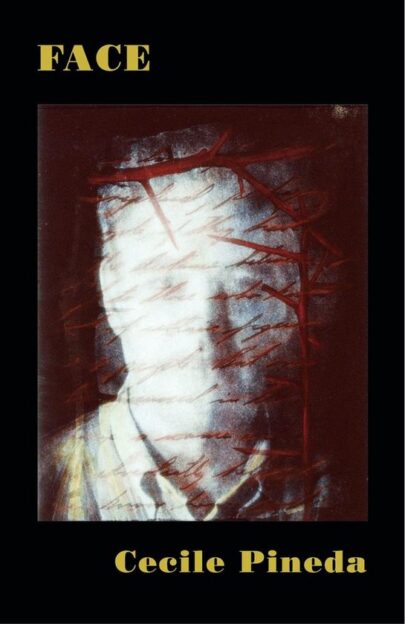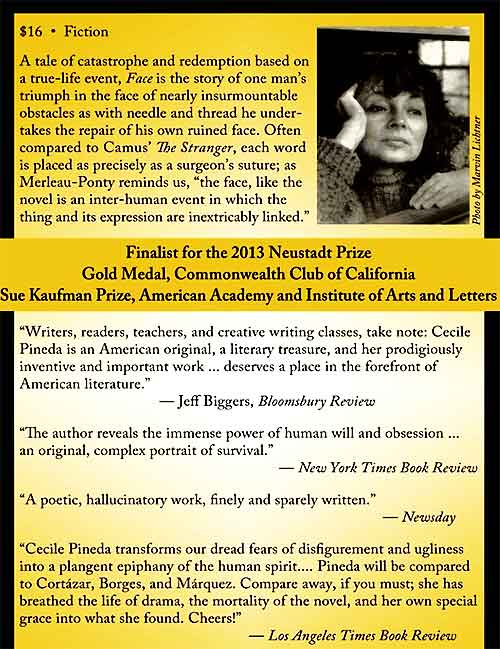By CECILE PINEDA (Wings Press; 1985/2003)
This literary shocker was once a favorite of mine. Upon reading the 2003 revised edition I found FACE, the debut novel by Cecile Pineda, a bit exasperating, not because it’s changed a whole lot—other than a newly written coda little is different from the initial 1985 publication—but because, simply, my patience for highbrow nastiness has lessened considerably.
It’s a highly symbolic depiction of personal redemption, told through the fact-based story of a man who loses his face in an accident. A summation of the actual case, taken from a 1975 address by a plastic surgeon, begins the book; according to said summation the man was a barber, severely injured in a fall off a cliff in Rio de Janeiro and unable to afford reconstructive surgery. The man became an outcast and had his house burned down by disgruntled neighbors, after which he disappeared.
FACE attempts to relate the tragic story of this man, who’s given the name Helio Cara. A newly written introduction by the author proclaims she was committed to “removing plot as a convenient crutch.” That explains the meandering narrative, related in short chapters and taken up with descriptions of the impoverished environ in which Helio lives and italicized flashbacks of his pre-accident life with his fiancée Lula. The writing is solid, and solidly concentrated, but unexceptional; this is the sort of thing with which the writers of the Latin American boom could have done wonders, but I’m afraid the American born Cecile Pineda simply isn’t in the same league as Gabriel Garcia Marquez or Jose Donoso.
As related here, Helio’s story hits all the beats contained in the opening summation. What Pineda adds is a violent episode in which Helio rapes and beats up Lula after she admits she finds his faceless form disgusting, and a profoundly gruesome finale in which he, after relocating to the home of his dying mother, creates a new face utilizing a stolen medical book, a pair of scissors and a mirror.
These climactic passages aren’t related with the Latin-centric magic realism you might expect, but in a blunt and naturalistic manner that spares the reader nothing. It’s the book’s most powerful portion by far, and the one element that for me has stood the test of time.
Regarding the new ending, it ties up a plot strand that was left hanging in the original publication (apparently that “convenient crutch” wasn’t so inconvenient to the author) but otherwise doesn’t help or hinder the text in any appreciable way.


